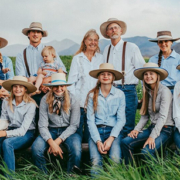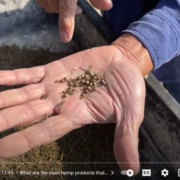Improving Poultry Profitability–Production and Economics Are Like Two Strong Wings
 Print This Post
Print This Post
By Ann Baier, NCAT Agriculture Specialist
“If I work really hard and take good care of my birds, the business part will work out, right?” Well, actually….no! Enthusiasm and hard work are necessary elements but they alone are not sufficient to launch and sustain a viable agricultural business. Production systems need to work in practice on the ground and make sense for the people involved—and it’s got to pencil out financially.
Practical production and business management capacities are like two wings of a bird; both are needed to start and sustain a viable business. Raising poultry on pasture, or in rotation with other crops, holds great potential for producing nutrient-dense meat or eggs, building soil health and fertility, and improving farm profitability. Designing and managing an integrated crop and livestock system requires practical on-the-ground production skills, as well as clear understanding of site-specific economic considerations.
The National Center for Appropriate Technology (NCAT), together with several partners, is embarking on a new project to support beginning farmers interested in farming systems that integrate growing crops and raising poultry on pasture. We invite you to get involved!
We’ll be working with aspiring, beginning, and experienced integrated crop and poultry farmers in California, Iowa, and Kentucky, in partnership with university extension, farmer organizations, policy advocates, and community groups in all three states. The three-year project—Two Strong Wings, Cover Crops & Veggies: Developing the Next Generation of Integrative Farmers in California, Iowa and Kentucky—is funded through USDA’s Beginning Farmer Rancher Development Program (BFRDP). The field of integrated crop and poultry production holds potential for people wanting to start or improve a farm business, but only when it’s done with one’s eyes wide open. A viable business meets the needs of the farm, the people, and the bottom line.
Practical information and multi-directional learning are watchwords for this project. Workshops, farm visits, and field days will provide opportunities to address relevant production and economic topics in the context of the real-life challenges and opportunities of farmers within unique climatic, cultural, market, and regulatory contexts of different regions. Farmers have essential experience, perspective, knowledge, and insights. Research and extension people have data from preliminary experimental findings. Together, they can discuss how the current state of the science and industry is—or could be—applicable to beginning farmers.
Events, held in-person in California, Iowa, and Kentucky (to the extent that human and poultry health conditions allow) will provide space and time for farmers, researchers, farmer support organizations, regulators, and policy advocates to meet each other and talk. Remote, videoconference meetings will complement in-person events, conserve time and resources, and make it possible to meet when it is inadvisable, difficult, or inconvenient to travel. Remote meetings also open the opportunity for people in distant areas to participate. Whether meetings are in-person, or by way of technology, direct conversations will move us all forward. The project aspires to help participants connect with networks of mutual learning and ongoing support that can extend beyond the activities of this project.
If you would like to connect with this work, please get in touch (especially if you are in California, Iowa, or Kentucky). If you are in any other state, you are welcome to participate in remote workshops. We are emphasizing inclusion of traditionally underserved populations—limited-resource and socially disadvantaged beginning farmers and ranchers, including Black, Indigenous and people of color, farmworkers, immigrants, and military veterans who are aspiring or beginning farmers. We seek appropriate ways to address the real needs of farmers as they start or improve their crops and poultry (whether for meat or eggs) farming businesses.
The project will be developing practical, relevant, and scientifically sound information products that will be shared on our websites and social media platforms, including publications, podcasts, videos, blogs, and newsletters. We welcome feedback and questions from anyone seeking to develop more productive and profitable integrated crop and poultry farming enterprises. Information resources will be available free on ATTRA’s and our partners’ websites, even after the conclusion of the project.
Over the course of this project, we’ll address the themes of:
- Pastured poultry husbandry and pasture management
- Integrated pastured poultry and cropping practices
- Housing, equipment, and predator management
- Food safety, handling, and processing regulations related to eggs and meat, and crops grown on the same land as poultry
- Environmental management and stewardship of natural resources including soil
- Business management, recordkeeping, branding and marketing
Stay tuned for more information!
Related ATTRA Resources:
Burroughs Family Farm Tour Video Playlist
Pastured Poultry Production and Profitability
Processing Poultry Meat for Sale: The Right Approach for Your Farm?
Sol Seeker Farm: Raising a Pastured Poultry Business
Pastured Poultry: Egg Production
Pastured Poultry Nutrition and Forages
Organic Poultry Production for Meat and Eggs
Project Partners:
University of California Cooperative Extension Poultry
Iowa State University Extension and Outreach
University of Kentucky Extension
Center for Land-Based Learning
Laurel County African American Heritage Center
Other Resources:
American Pastured Poultry Producers Association
Niche Meat Processors Assistance Network
This blog is produced by the National Center for Appropriate Technology through the ATTRA Sustainable Agriculture program, under a cooperative agreement with USDA Rural Development. ATTRA.NCAT.ORG.

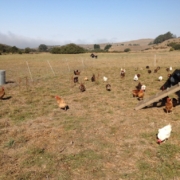
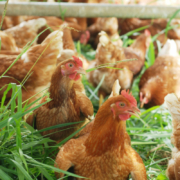
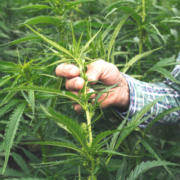 CanvaPro
CanvaPro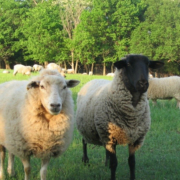
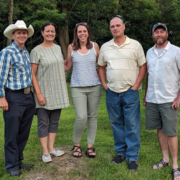
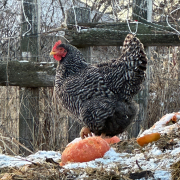
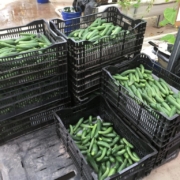 NCAT
NCAT